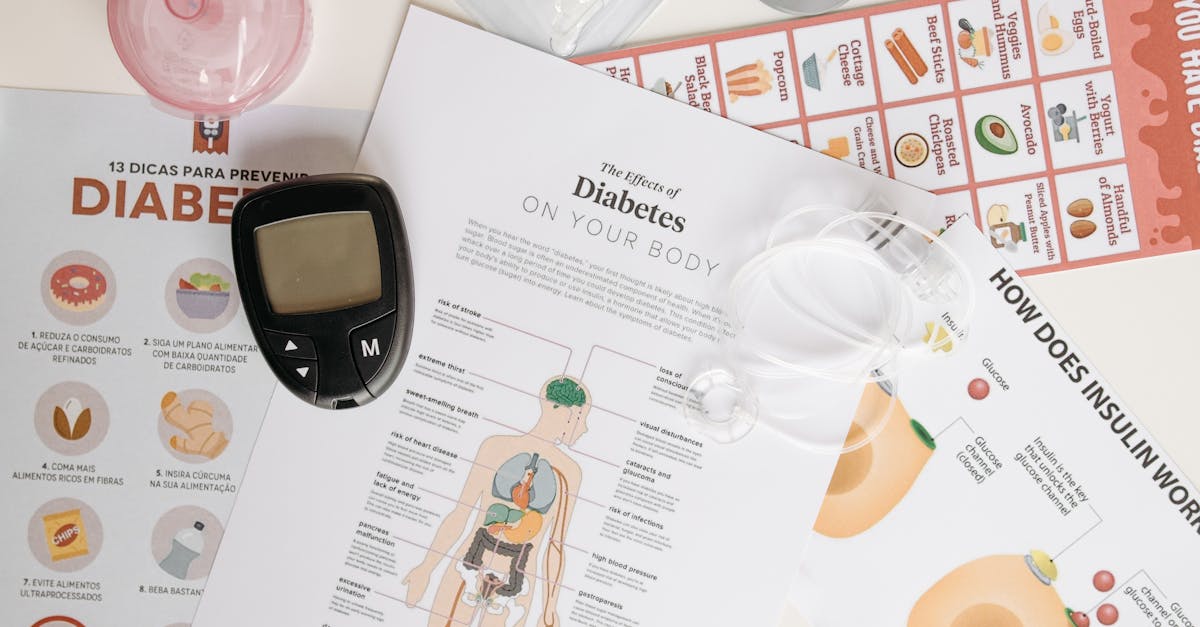Effective Habits for Lowering Cholesterol
Introduction
Cholesterol, a waxy, fat-like substance found in the blood, is essential for building healthy cells and producing hormones. However, when cholesterol levels become too high, it can lead to the buildup of plaque in the arteries, increasing the risk of heart disease, stroke, and other cardiovascular conditions. The good news is that managing cholesterol levels is largely within our control through lifestyle changes. By adopting simple yet impactful habits, individuals can effectively lower their cholesterol, improve heart health, and reduce the risk of chronic diseases. This article delves deeper into practical strategies for managing cholesterol, offering actionable tips and insights to help you take charge of your cardiovascular health.
Advertisement
Focus on Heart-Healthy Foods
A heart-healthy diet is the foundation of cholesterol management. Incorporating nutrient-dense foods into your daily meals can significantly reduce bad cholesterol (LDL) levels while promoting overall cardiovascular health. Focus on consuming a variety of fruits, vegetables, whole grains, and lean proteins, which are rich in fiber, antioxidants, and essential nutrients.
For example, leafy greens like spinach and kale are packed with antioxidants that help reduce inflammation and prevent plaque buildup in the arteries. Whole grains, such as quinoa, brown rice, and whole wheat bread, provide soluble fiber that binds to cholesterol in the digestive system and removes it from the body. Lean proteins, like fish, skinless poultry, and legumes, offer a healthier alternative to red meat, which is often high in saturated fats.
Additionally, consider incorporating foods fortified with plant sterols and stanols, such as certain margarines and orange juices. These compounds have been shown to block the absorption of cholesterol in the intestines, further aiding in cholesterol management.
Advertisement
Increase Soluble Fiber Intake
Soluble fiber is a powerful tool in the fight against high cholesterol. Found in foods like oats, beans, lentils, apples, and citrus fruits, soluble fiber dissolves in water to form a gel-like substance in the digestive tract. This substance binds to cholesterol particles, preventing them from being absorbed into the bloodstream and instead excreting them from the body.
To reap the benefits of soluble fiber, aim to include 5-10 grams in your daily diet. For example, a bowl of oatmeal for breakfast provides about 2 grams of soluble fiber, while a serving of black beans or lentils can add another 3-4 grams. Snacking on fruits like apples, pears, or oranges is another easy way to boost your intake. Over time, a diet rich in soluble fiber can lead to significant reductions in LDL cholesterol levels.
Advertisement
Embrace Healthy Fats
Not all fats are created equal. While saturated and trans fats can raise LDL cholesterol levels, unsaturated fats have the opposite effect, promoting heart health by lowering LDL and increasing HDL (good cholesterol). Incorporating sources of healthy fats into your diet is a key strategy for managing cholesterol.
Monounsaturated fats, found in olive oil, avocados, and nuts, are particularly beneficial. For example, replacing butter with olive oil in cooking or drizzling it over salads can help reduce LDL cholesterol. Similarly, snacking on a handful of almonds or walnuts provides a dose of healthy fats and fiber, both of which support cholesterol management.
Polyunsaturated fats, including omega-3 fatty acids, are another excellent choice. Fatty fish like salmon, mackerel, and sardines are rich in omega-3s, which have been shown to lower triglycerides and reduce inflammation. For those who don’t eat fish, flaxseeds, chia seeds, and walnuts are plant-based sources of omega-3s.
Advertisement
Stay Active Regularly
Physical activity is one of the most effective ways to manage cholesterol levels and improve heart health. Regular exercise helps raise HDL cholesterol while lowering LDL cholesterol and triglycerides. It also promotes weight loss, reduces blood pressure, and improves circulation, all of which contribute to a healthier cardiovascular system.
Aim for at least 150 minutes of moderate aerobic exercise, such as brisk walking, cycling, or swimming, each week. Alternatively, 75 minutes of vigorous activity, like running or high-intensity interval training (HIIT), can provide similar benefits. Strength training exercises, such as lifting weights or using resistance bands, should also be incorporated at least twice a week to build muscle and boost metabolism.
For those new to exercise, starting with small, manageable goals can help build momentum. Even a 10-minute walk after meals or taking the stairs instead of the elevator can make a difference over time.
Advertisement
Maintain a Healthy Weight
Excess weight, particularly around the abdomen, is closely linked to higher LDL cholesterol and triglyceride levels, as well as lower HDL cholesterol. Losing even a small amount of weight can have a significant impact on cholesterol levels and overall heart health.
Adopting a balanced diet and regular exercise routine is the most effective way to achieve and maintain a healthy weight. Focus on portion control, mindful eating, and choosing nutrient-dense foods over processed or high-calorie options. Keeping a food diary or using a mobile app to track your meals and activity can help you stay accountable and make informed choices.
Advertisement
Quit Smoking
Smoking is a major risk factor for heart disease, as it damages blood vessels, lowers HDL cholesterol, and increases LDL cholesterol. Quitting smoking is one of the most impactful steps you can take to improve your cholesterol levels and overall cardiovascular health.
Within weeks of quitting, HDL cholesterol levels begin to rise, and circulation improves. Over time, the risk of heart disease and stroke decreases significantly. If you’re struggling to quit, consider seeking support from a healthcare provider, joining a smoking cessation program, or using nicotine replacement therapies.
Advertisement
Limit Alcohol Consumption
While moderate alcohol consumption has been associated with increased HDL cholesterol levels, excessive drinking can have the opposite effect, raising LDL cholesterol and triglyceride levels. To protect your heart, it’s important to adhere to recommended guidelines: no more than one drink per day for women and two drinks per day for men.
If you don’t currently drink alcohol, there’s no need to start for the sake of heart health. The potential benefits of moderate drinking can be achieved through other lifestyle changes, such as a healthy diet and regular exercise.
Advertisement
Regular Check-Ups and Monitoring
Regular monitoring of cholesterol levels is essential for maintaining heart health. Routine check-ups allow healthcare providers to track changes in cholesterol levels and identify potential issues early. Based on your results, your doctor can offer personalized advice, recommend lifestyle changes, or prescribe medications if necessary.
In addition to cholesterol tests, other screenings, such as blood pressure checks and diabetes tests, can provide a comprehensive picture of your cardiovascular health. Staying proactive about your health ensures that you can address any concerns before they escalate into more serious conditions.
Advertisement
Conclusion
Managing cholesterol levels is a lifelong commitment that requires consistent effort and mindful choices. By incorporating heart-healthy foods, increasing soluble fiber intake, embracing healthy fats, staying active, maintaining a healthy weight, quitting smoking, limiting alcohol, and scheduling regular check-ups, you can significantly lower your cholesterol and reduce the risk of heart disease.
These habits not only improve cholesterol levels but also enhance overall well-being, energy levels, and quality of life. Start small, stay consistent, and celebrate your progress along the way. By prioritizing heart health today, you can enjoy a healthier, more vibrant future.
Advertisement


